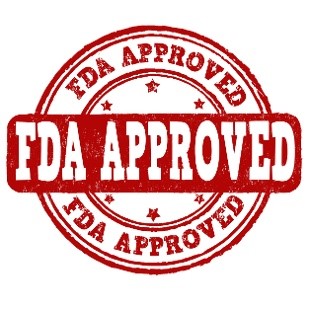2 min read
How to Get FSMA Regulations Compliance Quickly
Companies in the food and beverage industry are in for quite a change with the Food Safety Modernization Act (FMSA). Established in 2011, the...
3 min read
SWK Technologies Tue, Aug 11, 2015

 Attention Food Manufacturers: Significant Changes for Your Business Start August 30, 2015
Attention Food Manufacturers: Significant Changes for Your Business Start August 30, 2015Food manufacturers now face new regulations such as the Food Safety Modernization Act (FMSA), which was signed into law by President Obama in 2011 and goes into effect on August 30, 2015. Since the regulations imposed by this act represent an expansive shift in the market, it is important for food manufacturers to be aware of three significant items.
Your food manufacturing business now falls under greater regulatory restrictions – and the FDA has more oversight than ever before.
Here are 3 major changes and suggestions on how you can capitalize on the new laws to build your business and expand to new partners.
Starting this August, the FDA is allowed to mandate product recalls, access more of your records, and perform more diligent inspections of your facilities and operations. In fact, they have already got a head start, demanding more transparency from your reporting and documentation.
Non-compliance isn’t an option.
Under FMSA, if you fail to comply with the new rules, your food manufacturing business will be subject to severe government penalties and even lawsuits.
Recommended Action: Be prepared. Arm yourself ahead of time with the knowledge you need before the first stage of the Act goes into effect on August 30, 2015
FMSA includes a few key sections that will impact every single food company that does business in the United States. Under the new act, you will be required to take preventative controls entailing that you perform in-depth and expensive hazard analysis on a regular basis. Another requisite is that you form a new or expanded food-safety platform.
You will also be required to expand your record keeping on a grand scale, under the foreign supplier verification program (FVSP). This also means you will be subject as well to much more extensive verification. All of these measures are meant to ensure that your suppliers are not providing adulterated foods or items that have been misbranded. Unfortunately, this places much of the burden on your business as the distributor, and you are going to be held accountable under the new act.
By far, the most significant impasse of the new laws are the new requirements for traceability.
The traceability requirements of the FMSA hold the greatest weight of all. Under the traceability requirements, you will be required to perform and verify that you have complete supply-chain tracking at all times. Considering the multitude of sources for your ingredients, this requirement poses no small task.
If you fail to provide complete supply-chain transparency, you are at risk of severe penalization by the Food and Drug Administration. This is no joke.
Recommended Action: Start planning your budget needs now to ensure that you have the tools to get a jump on the new process and be able to meet all of your obligations ahead of schedule.
We’ve heard it all before, but that doesn’t make it less true: The best defense is a strong offense.
Don’t invite problems from the FDA. Be proactive in your compliance. Take advantage of your resources and learn all you can about FMSA. Above all, stay confident by implementing changes as soon as possible. Create a verifiable paper trail which proves that you’ve already started the process of compliance.
Early birds get the worm. Take advantage of the little time you have now to gain a thorough and comprehensive understanding of the new regulations before the laws go into effect.
Recommended Action: Requirements and the timelines change depending on the size of your business. For this reason it is imperative that you identify the specific requirements for your business. Ensure that you commit to memorizing the timeline for compliance. If you are able to start implementing changes now, you can use that as a value-add to make your business more attractive to partners.
Download our handy white paper, “What food manufacturers need to know about the Food Safety Modernization Act” and prepare your business with the facts you need right now.
Want to know more about how food and beverage manufacturers can stay ahead of the new laws? Check out "An ERP Solution for Food and Beverage Manufacturers"
Who we are
Over the past 27 years, SWK Technologies has been consistently rated as a top leader in software sales and consulting. To our customers, we’re more than a reseller: We’re their trusted advisor. Learn about the SWK Tech difference at www.swktech.com.
If you have questions about how an ERP system can help your business, SWK Technologies will help you evaluate your options. CONTACT US ONLINE or by phone at (877) 979-5462. Since 1989, we’ve specialized in helping customers like you find the right business tech solutions to increase your company’s growth and productivity.
SWK is a business application and consulting company providing strategies and solutions to meet our clients’ information and business management needs. As a Sage Software Authorized Business Partner, Sage Certified Gold Development Partner, Sage Certified Sage ERP X3 Partner, and Sage Authorized Training Center, we offer best-of-breed solutions for accounting and business management, financial reporting, ERP, CRM, job costing, EDI, and warehouse management.
Another version of this article was posted on SWK's Blog on 5/14/2015: http://erpsoftware.swktech.com/blog/the-3-things-food-manufacturers-need-to-know-about-fmsa

2 min read
Companies in the food and beverage industry are in for quite a change with the Food Safety Modernization Act (FMSA). Established in 2011, the...

1 min read
How Sage X3 FDA Compliance Functionality Meets the High Demands of Food and Beverage Industry In the face of increasingly strict FDA compliance, food...

1 min read
10 Sage X3 FDA Compliance Benefits for the Food and Beverage Manufacturing Industry As a food and beverage manufacturer, you are well aware of the...